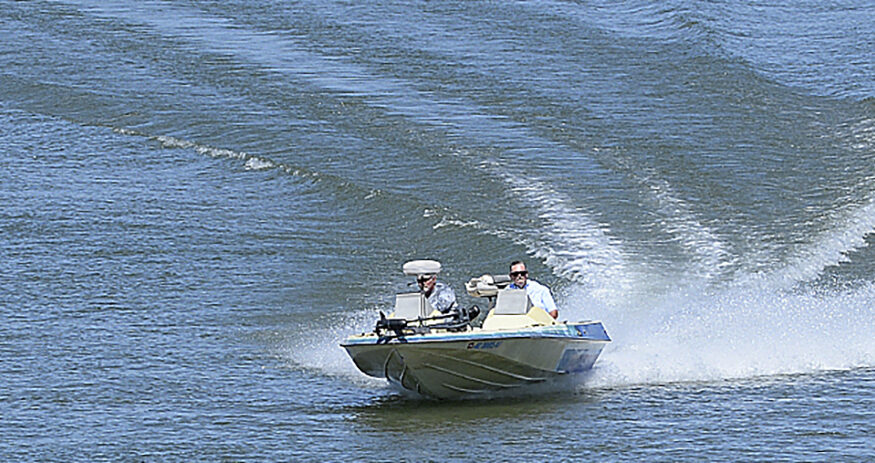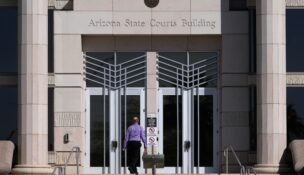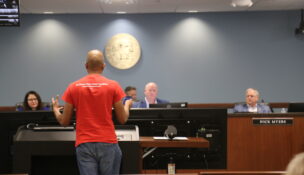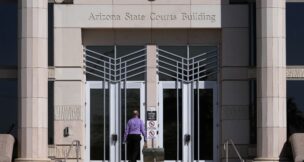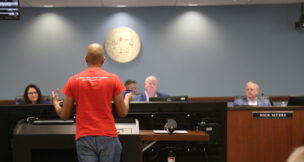Colorado River conference ‘mixed bag’ for Arizona water officials
Reagan Priest Arizona Capitol Times//December 13, 2024//
Colorado River conference ‘mixed bag’ for Arizona water officials
Reagan Priest Arizona Capitol Times//December 13, 2024//
Arizona’s water community left the annual conference of Colorado River users with mixed feelings about the future of negotiations on a new compact.
Arizona Department of Water Resources Director Tom Buschatzke and Central Arizona Project Board President Terry Goddard joined other water stakeholders from seven states at the annual Colorado Water River Users Association conference. Tensions were high, according to media reports, and negotiators from Upper Basin and Lower Basin states traded barbs.
The conference came as negotiations over the renewal of the Colorado River compact, which is set to expire in 2026, are at a standstill. Goddard said he was “more confident” after the conference than he was going into the conference, but acknowledged that it was a “mixed bag.”
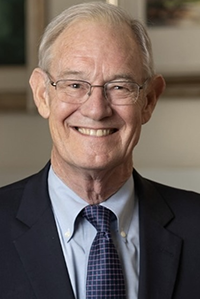
“I could see some very serious discussions taking place informally, person-to-person, the right people were talking and if there’s nothing else that comes out of that, that will be a major step,” Goddard said.
Buschatzke, who is Arizona’s chief negotiator for the Colorado River compact, said he felt like not much had changed between the beginning and the end of the conference and that there’s still a lot of uncertainty surrounding negotiations.
Upper Basin states and Lower Basin states are at an impasse over where cuts need to be made to ensure all seven states will have enough water in the coming decades. The Upper Basin consists of Colorado, Wyoming, New Mexico and Utah, while the Lower Basin includes Arizona, California and Nevada.
The Lower Basin states say they have already made deep cuts to their water usage and would be willing to make more, if the Upper Basin states make their fair share of cuts. However, the Upper Basin states say they have always used less water than their southern counterparts and are unwilling to make cuts to what they currently use.
Goddard said the Upper Basin states’ presentation during the Colorado Water River Users Association conference on their proposal for the river was “very disorganized.”
“That said a lot, because you really don’t have a proposal except to say ‘no,’” Goddard said. “That was a pretty weak position, and I think that led immediately afterward to some very serious discussions as to how we could pull together, because they simply did not have structure that would take us into the next 20 years.”
Buschatzke, alongside representatives from California and Nevada, gave a presentation on the Lower Basin states’ proposal and said he felt they did a “credible job” explaining what he called a “middle of the road” proposal.
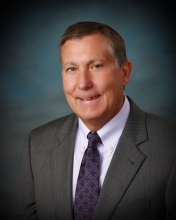
“I thought it was evident to everyone … the wide divergence between the Upper and Lower Basins that was evidenced at CRWUA,” Buschatzke said.
Buschatzke and Goddard said that this year’s CRWUA conference marked the first time in their memories that the seven states did not give a presentation on the state of the river together. Buschatzke said this year’s conference was planned by representatives of Upper Basin state Utah, and they decided not to put the two groups on a panel together.
During the conference, a negotiator from California and a negotiator from Wyoming traded criticisms over the opposing plans for the river, according to media reports. California’s negotiator, J.B. Hamby, accused the Upper Basin states of using their share of water to “build pipelines to more golf courses.” Wyoming’s negotiator, Brandon Gebhart, called the comment “bullshit” and called for leadership over “rhetoric.”
The comments reflect the tensions that have led some to consider alternate pathways to a deal. Buschatzke and the Arizona Department of Water Resources have asked the Governor’s Office for funding for a potential legal battle, while the Central Arizona Project voted last week to ask the federal government to explore the possibility of a “compact call,” referring to language in the original 1922 Colorado River agreement.
Under a compact call, the Bureau of Reclamation would impose cuts on the Upper Basin on behalf of the Lower Basin. Goddard said the CAP board’s vote on a compact call did cause a lot of conversation at the CRWUA conference and said it is “a very real possibility in the future.”
Buschatzke noted that the Lower Basin states presentation at the conference highlighted just how dire a compact call could be for the Upper Basin compared to the proposal offered by the Lower Basin.
“The volume of water that the Upper Basin would need to reduce under a compact call, from our perspective, was significantly bigger than what we’re asking them to reduce in a collaborative, voluntary plan, and that has been lost, I think, in relation to what’s on the table,” Buschatzke said.
While entities like CAP are interested in a compact call if negotiations stay stalled, Gov. Katie Hobbs would not comment on that or the possibility of a legal battle over the river.
“These are hypotheticals,” Hobbs told the Arizona Capitol Times on Dec. 9. “At this point, we’ll continue to move forward and work with the process as it unfolds.”
Despite the tensions, Hobbs said she feels “good about negotiations continuing to move forward.” She said Upper Basin states need to bring meaningful compromises to the table in order to make that happen.
“The Lower Basin cannot bear the brunt of any cuts that come, and we’re going to continue to make that case and negotiate,” Hobbs said.
Goddard said he thinks the Lower Basin states need to keep all options open to ensure a deal is made because any agreement would need approval from Arizona’s Legislature and Congress.
“We much prefer to have the seven states – as they have before – work it out without federal interference and without court interference,” Goddard said. “But we’d be foolish to ignore that when the other side refuses to come to the table under any circumstances, that legal action might be needed.”
He said the ideal timeline would see productive negotiations taking place throughout 2025 until a deal is reached, so that 2026 “is a time to wrap the package up and put a bow on it.”
While Buschatzke and ADWR are preparing for alternative possibilities, he agreed with Hobbs that they will continue to work with the usual process.
“The state of Arizona wants a negotiated outcome,” Buschatzke said. “We do not want litigation. I know Governor Hobbs made a statement to that effect. So obviously I know what my marching orders are.”

